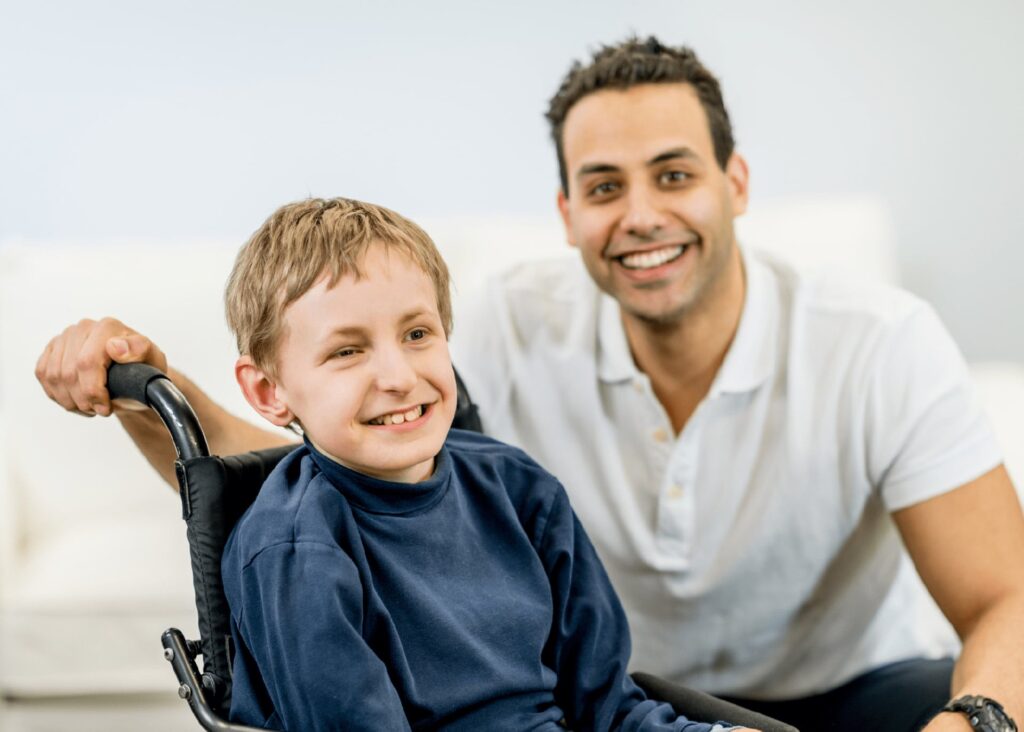When a child or youth is unable to permanently live with their family, and extended family, cultural and community members have been exhausted as possibilities for permanency options, we seek an alternative to ensure the child or youth’s long-term care and well-being. Adoption is intended to provide children and youth with permanency, security, and lifelong support. Children and youth of all ages can be adopted and come from a variety of cultural, racial, ethnic, and religious backgrounds, as well as complex lived experiences.

Start your adoption journey
We are committed to making cultural connections
The Child Youth and Family Services Act (CYFSA) recognizes the importance of race, ancestry, place of origin, and cultural and linguistic heritage in making decisions in the best interests of a child or youth. The Children’s Aid Society of Ottawa is committed to this value and acknowledges that historical practices within the child welfare system have often minimized or dismissed the significance of these connections for children and youth.
Given the over representation of First Nations, Inuit, Métis and Black children and youth in our care, we are continuously recruiting adoptive parents who either share the child’s racial and cultural background, or who can make an additional commitment to ensure that the child is able to develop a positive and cultural identity. Additionally, we work to ensure that children and youth are well-supported through experiences of racism and discrimination. Supporting connections with the birth family and the child’s cultural community is an essential component with all adoptions.
When members of a child or youth’s extended family, cultural circle or community are not able to provide permanency, we then match children to approved and waiting adoptive applicants.
Related FAQs
-
Adoption
I want to adopt my step-child / relative. Can you help with this?
In Ontario, adoption of a stepchild or relative is done directly through an application to the Court. It does not require involvement of the Children’s Aid Society or adoption licensee. You can contact a family lawyer or the Family Law Information Centre at your local courthouse to get information on the process.
Children’s Aid Societies only complete adoptions on children who are in Extended Society Care. If you are aware that a relative is in the care of the Society, you should contact the child’s caseworker.
-
Adoption
What resources and supports are available after adoption?
Once a child is placed for adoption, they are eligible for community or financial supports that are available to any family in the community, including the Canada Child Benefit, the Child Disability Tax Credit, funding through the Ontario Autism Program, Special Services at Home or other community based programs for children with disabilities.
There are also specific supports available to adoptive children and their families. A review of these supports, including adoption subsidies, assistance with post-secondary costs, parent training and support groups can be found at Adoption services and supports | ontario.ca
You can also contact the Children’s Aid Society of Ottawa for post-adoption support at any time after the adoption is finalized and can access information about this through the assessment process. While the Society does not provide counselling or direct therapeutic services, we can assist with information, community referrals and advocacy.
-
Adoption
Is a child confused by having ongoing contact with birth family / first family?
Children have a right to know their history and the reasons for their adoption as well as to maintain relationships that have been meaningful and beneficial to them. Ongoing contact allows the child (and the adoptive parents) access to information and allows the child the opportunity to integrate all aspects of their identity as they grow up. It also promotes attachment if the adoptive parents are able to support the child’s feelings about their birth family and their adoption story.
-
Adoption
As an adoptive parent, can I determine the level of openness?
Decisions regarding openness are based upon the needs and best interests of the child, not the adults. Adoptive parents will be consulted regarding openness arrangements, however we value the benefit of in-person openness for the adopted child or youth and this is an expectation in most adoptions.
-
Adoption
Do all adoptions have openness?
Preserving a child or youth’s relationships with birth parents, siblings, grandparents, and other significant connections are the cornerstones of openness. Maintaining as many connections and relationships as possible to the people who love and care about them minimizes losses for the child and assists in identity development for the adopted child.
The Children’s Aid Society of Ottawa supports openness and the goal is to have in-person contact whenever possible. Most adoptions through the Children’s Aid Society have some form of openness and the majority of these are court orders for openness. Our expectation is for families to embrace and support openness relationships.
-
Adoption
How long is a homestudy valid?
Generally, two years. If you have not been matched with a child, you will have to have an update to your homestudy, with interviews and updated supporting documents. You do not need to repeat PRIDE training. You will also have to have an update to your homestudy if there are any other significant changes in your family, so it is important to keep your adoption worker advised of these changes.
-
Adoption
Can I adopt a child from another agency / region in Ontario?
Once your homestudy is approved you can register your family profile with AdoptOntario, a website that lists and profiles children in need of adoption from across Ontario. You will have access to child profiles, videos and events and can submit an expression of interest form to be considered to adopt a child from another region within Ontario. We will work with that agency to support the adoption if you are the identified match for that child.
-
Adoption
How long will I have to wait until I’m placed with a child?
Once approved, there is no standard timeframe to have a child placed in your home. The time can vary depending on the child(ren) being referred for adoption and your own family’s strengths and experiences. While we strive to only move forward with assessing families who we feel are likely to be a placement match for the children we serve, in recent years, we have seen a significant reduction in children being referred for adoption by people who are unknown to them, resulting in longer delays. Families that can support a wider range of age and needs will have a greater likelihood of being matched with a child, however there is no guarantee of a child match.
-
Adoption
Will it be faster to have my homestudy completed privately and submit it to the Society rather than wait for a CAS assessment?
If you plan to register with an adoption agency or licensee for consideration for private adoption placements, you may wish to further explore the option of a private adoption homestudy. Timelines to complete a private homestudy, as well as associated costs, would be best explained by your chosen private practitioner.
The Society will only pursue applications with families who have an expressed readiness to meet the unique needs of children involved with the child welfare system. While the required background checks have already been completed, private homestudies do require an update and interviews with the assigned worker to help us to better know your family for the purpose of matching with a child being referred for adoption prior to approval.
-
Adoption
How long does it take to complete the homestudy?
It varies. Once assigned to a worker for assessment, the homestudy process typically takes 6-9 months to complete, however can be influenced by timelines to get supporting documents, applicant’s availability for meetings and other caseload demands of the assigned worker, as well as the current need for adoptive families.






